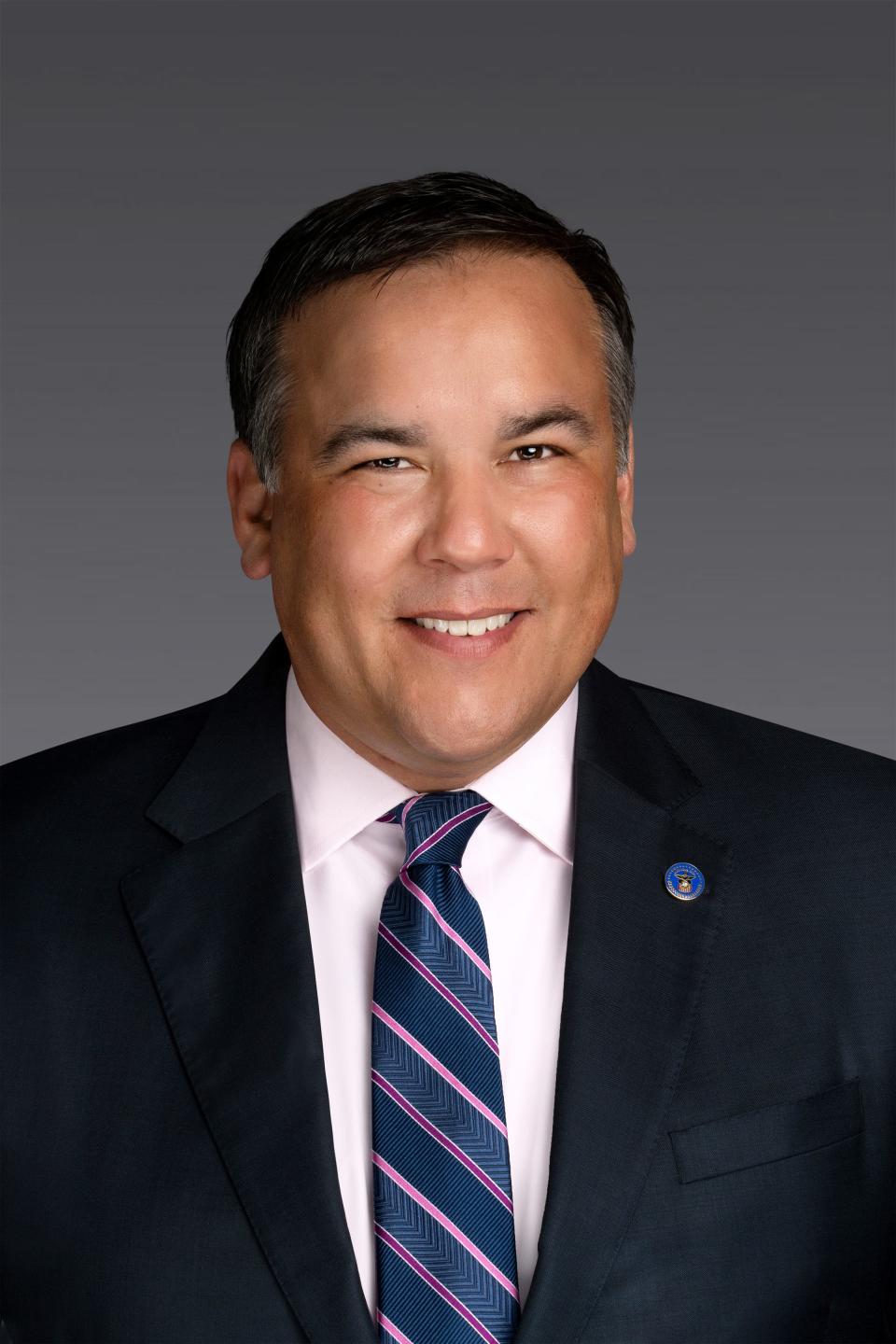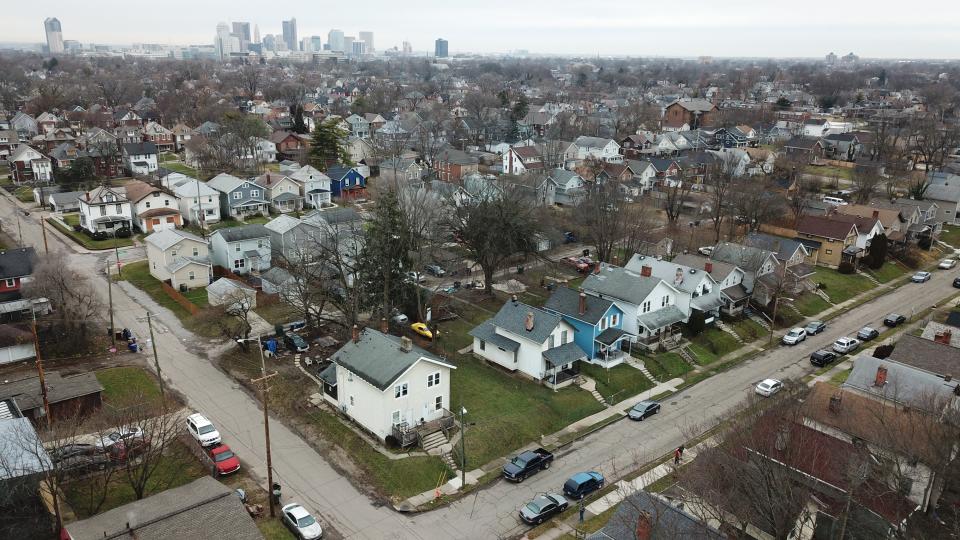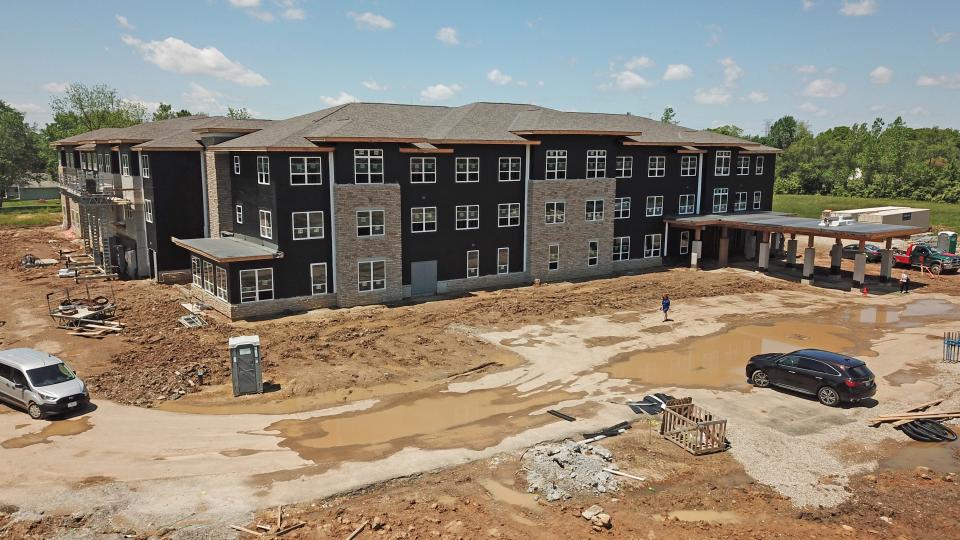Ginther: 'Inaction is not an option.' If housing not addressed, market will destabilize, homelessness will increase
Andrew J. Ginther is the mayor of Columbus.
Columbus is at a crossroads.
As mayor, it has been my great pleasure to see Columbus become a magnet for national corporations, vibrant startups and talented people looking for a new place to call home. But while we have built the regional infrastructure to support this level of economic growth, we have struggled to match it with housing.
More: City proposing $1.5B bond package on Nov. 8 ballot, including $200M toward housing
Between 2009 and 2019, a single home was built for every 2.5 jobs created within the Columbus Region.
This trajectory is unsustainable.

For every resident to afford their home, our regional ratio of new homes to new jobs must be closer to 1.5.
If we continue as we’re going, we will not only lose the competitiveness we’ve gained as a region, but we will also deepen the economic divides that we have been working so hard to erase.
More: Experts: City's 'wonderful magic carpet ride' might end if housing crisis isn't fixed
Communities across the nation are facing increased housing costs, housing instability, housing displacement and the lasting impacts of racial and economic segregation – and Columbus is no exception. We are experiencing growth as a region, but too many people in our community are not sharing in our city’s success.
For decades, our region enjoyed stable housing costs because we had enough places for people to live. As we grew, some central Ohio communities kept pace with housing, but others used regulatory tools to limit the amount and type of housing allowed, which created an artificial housing scarcity and made them unaffordable.
More: B.R.E.A.D. protests in front of new soccer stadium for affordable housing
The outcome is the systemic exclusion of low-income families as well as people of color from these communities.
More: How to submit guest opinion columns to the Columbus Dispatch
If we continue to under-build housing as our population grows, housing scarcity will grow, and more families will be forced to pay more than 30 percent of their income on housing, which undermines their ability to afford food, child care, transportation and medical needs.
Or they will live in substandard housing, become vulnerable to eviction, displacement and homelessness, or move farther from work.

If you work in Central Ohio, you should be able to live in central Ohio. We have a once-in-a-generation opportunity to harness our growth and build a more inclusive city – and that’s why we need a Columbus Housing Strategy.
More: Opinion: Columbus' shame: High cost of housing pushes low income residents out
On Monday, I outlined my Housing Strategy.
This plan is both simple and ambitious. Columbus will build more housing of all kinds — market-rate, workforce and affordable — while directing our resources and deploying new tools to:
Preserve existing affordability and protect residents from evictions and displacement,
Invest in additional affordable housing for families and individuals, and expand wealth-building opportunities, and
Include low-income residents and people of color in their neighborhoods of choice.
As we build, we must tackle the serious challenges our neighbors face as a result of our growth. We must use our resources to create new affordable housing, stabilize families facing eviction and those who are at risk of experiencing homelessness, end housing discrimination, support Black homeownership and ensure that low-income homeowners stay in their homes.
More: Experts: City's 'wonderful magic carpet ride' might end if housing crisis isn't fixed
To do this, my strategy includes asking Columbus voters to approve a new bond package that will unleash an unprecedented $200 million in public funding for affordable housing.
It also updates our zoning code and requires developers to create even more affordable housing if they wish to utilize a city tax abatement.
But Columbus cannot solve this crisis alone. We must be joined by the private sector and the rest of the region.

Our suburban neighbors must do what they can to add density to their communities and support affordable housing and stabilize families.
As central Ohio residents, we must also embrace a new mindset that welcomes more neighbors into our own communities, especially neighborhoods with direct access to jobs and transportation.
More: Columbus zoning code overhaul should combat history of racism, council told
Change is hard, but change is here, and we have a real choice to make about the kind of change it will be.
Inaction is not an option. If we fail to act now, the housing market will destabilize even further, many of our most vulnerable residents will experience homelessness, and our collective quality of life will be lost.
The other choice — the right choice — is to seize the opportunity presented by our robust growth and build the housing we need.
This is the choice Columbus is making, and I hope you will join us.
Andrew J. Ginther is the mayor of Columbus.
This article originally appeared on The Columbus Dispatch: Why Columbus asking for $200 million for affordable housing | Opinion

